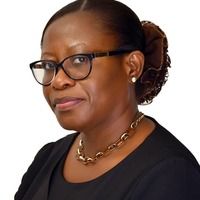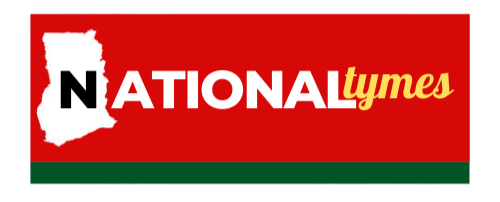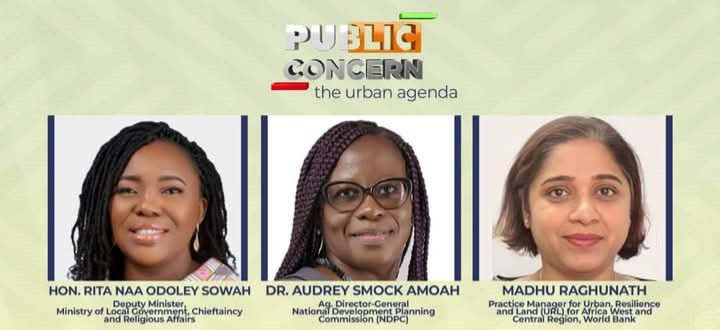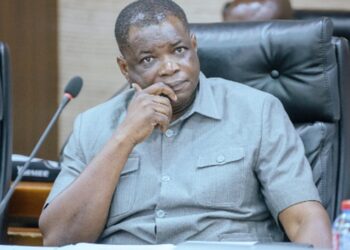
Deputy Minister for Local Government, Chieftaincy and Religious Affairs, Hon. Rita Naa Odoley Sowah has joined key stakeholders on GTV panel discussion which focused on Ghana’s Sustainable Cities Strategy, a comprehensive national plan aimed at promoting inclusive, resilient, and environmentally sustainable urban development.
The televised discussion brought together thought leaders in the field of urban planning and sustainable development. Hon. Naa Odoley Sowah was joined by Dr. Audrey Smock Amoah, the Acting Director-General of the National Development Planning Commission (NDPC), and Madhu Raghunath, the Practice Manager for Urban Resilience and Land for the Africa West and Central Region at the World Bank.
During the discussion, Hon. Naa Odoley Sowah emphasized the government’s commitment to strengthening local governance structures and building urban environments that are livable, efficient, and climate-resilient.

She noted that Ghana’s rapid urbanisation requires coordinated and forward-thinking strategies to ensure that cities do not become overburdened by population growth, inadequate infrastructure, and environmental challenges.
“Our sustainable cities agenda is not just about physical infrastructure. It is also about inclusivity, citizen participation, and building systems that work for all; from sanitation and transportation to affordable housing and digital transformation,” she stated.
Dr. Audrey Amoah highlighted the NDPC’s role in aligning the strategy with Ghana’s long-term development framework, Vision 2057. She stressed the need for integrated planning across sectors and regions to reduce inequalities between urban and peri-urban areas.

Madhu Raghunath added an international perspective, sharing insights from other African countries and emphasizing the World Bank’s support in areas such as waste management, urban resilience, and financing mechanisms for city governments. She praised Ghana for taking proactive steps and pledged continued technical support from the World Bank.
The panel concluded with a call for stronger collaboration among stakeholders, investment in data systems for planning, and community engagement to ensure that Ghana’s cities become engines of growth, equity, and sustainability.
Source: Nationaltymes.com

















